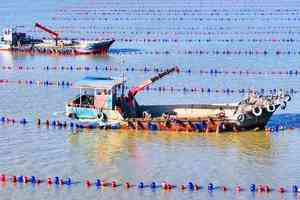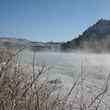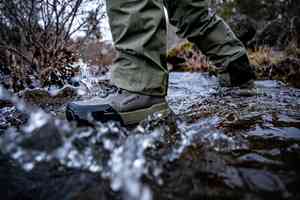The natural gas industry has long held that extracting natural gas poses no threat to surface water and groundwater, including private water supplies, while opponents of Pennsylvania's record-breaking natural gas extraction industry have long refuted these claims as false. Earlier this week, the Pennsylvania Department of Environmental Protection (DEP) released to the public a list of 248 documented cases where the state found that drilling and other activities related to hydraulic fracturing had damaged water supplies, offering further concrete proof of the false nature of the industry's claims.
The Pennsylvania DEP has been widely criticized for a lack of transparency and a failure to report to the public claims and findings of water supply contamination resulting from activities of the natural gas industry. While the recent release of these documents has generally been regarded as a step in the right direction, conservation and environmental groups have called the DEP's latest action insufficient, and it is easy to see why.
Browsing through documents provided to homeowners and tied to each of the 248 cases made public by the DEP reveals the information included in each to be widely disparate and wholly lacking standards. While some reports list in detail the disruption to the water supply in question -- documenting the specific levels chemicals and sediments found in the water supply -- many include no information beyond the indication that the state "has determined [the] water supply to be affected by natural gas drilling," offering no further details whatsoever.
Perhaps more importantly, a shocking number of the documents related to these contamination incidents provide no indication of whether the homeowners are satisfied with efforts to remedy the contamination or whether any such efforts have even taken place. One document notes nothing more than the fact that the company that owns the well has indicated they are "willing to work with" the homeowner in resolving the issue. Other letters offer no information on remediation efforts other than stating that the DEP "is working to resolve the issue," despite years having passed since the letter's issuance. Digging through further contamination reports reveals such documents to be commonplace, possibly the rule rather than the exception.
Even more troubling to those concerned with the preservation of the state's surface and groundwater may be the fact that -- even in the cases where the DEP has documented the efforts of energy extraction companies to rectify water supply contamination -- these efforts almost always come in the form of water supply replacement or modification (i.e. the installation of water filtration systems on the homeowner's property) rather than addressing the root cause of the issue. And while industry proponents may point out the impracticality of addressing the causes of contamination at their source, this reality will likely provide little comfort to those seeking to protect Pennsylvania's rivers, streams and aquifers.
































Comments